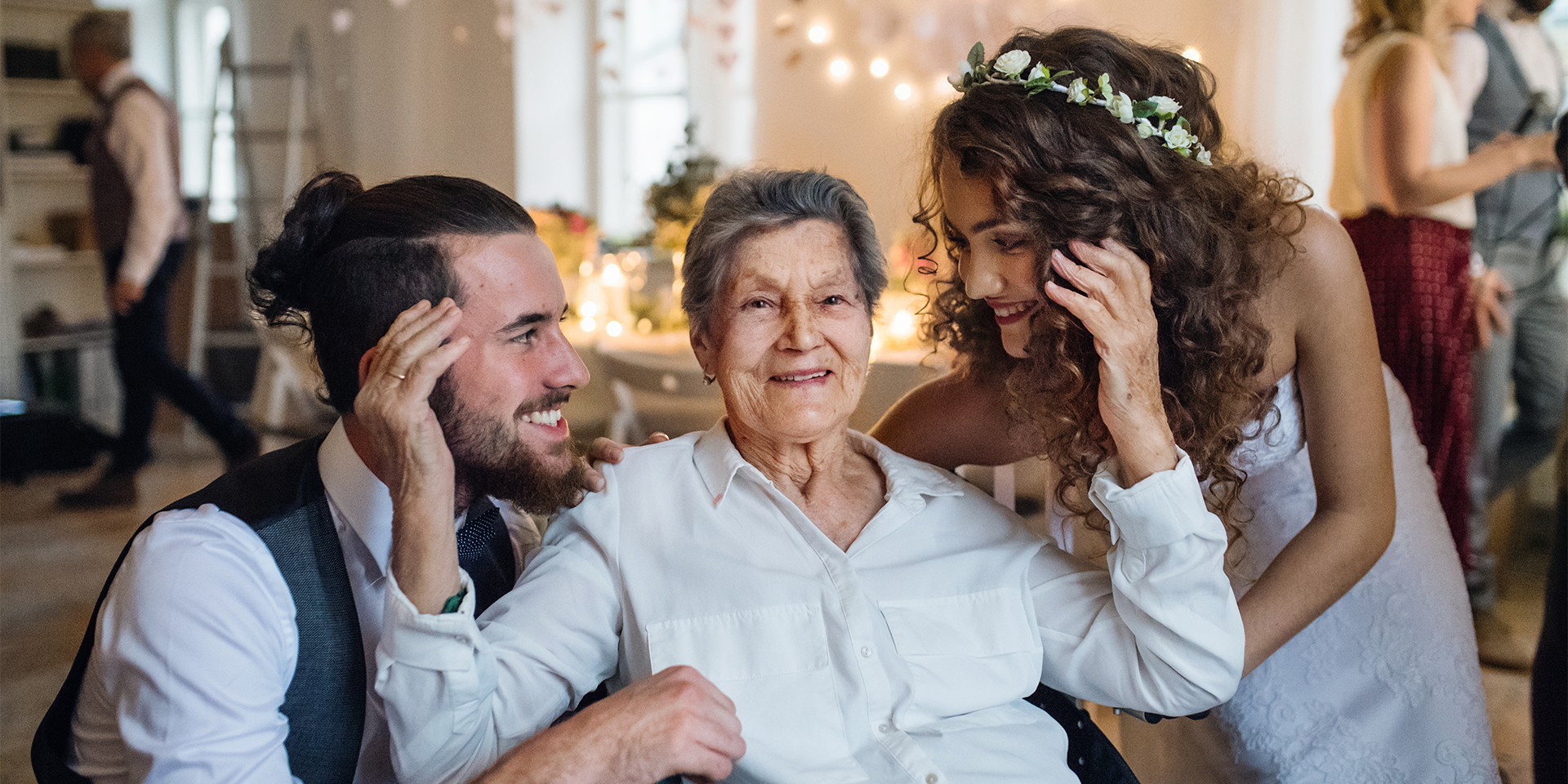Preparing for Family Events
by Dementia Alliance of NC
Whether it’s a holiday, mother’s day, a wedding or graduation, small changes such as timing an event around your person’s best time of day or limiting the number of guests can make the experience better for everyone! Don’t get so involved in the plans you forget the point of the activity or event. The experience might not be like it used to be, but you can still find the magical moments. Consider these tips:
Before the event:
- Communicate with guests beforehand inviting them to join you in making the day more manageable for the person with dementia. Explain to them that your goal will be A QUIETER holiday…one person speaking at a time, everyone else listening.
- Keep distractions to a minimum. Even beloved and well-mannered pets can be bothersome to someone who isn’t used to them.
- Limit TV and other noise in the background. If music is part of your tradition, play it at times other than meals or during conversations.
- Plan your party during the time of day that works best for your person. Many people living with dementia are challenged late in the day, while others don’t do well in the morning.
- If the event is lengthy, arrange for your loved one to leave early or have quiet time or rest.
- Make the most of “teachable moments” with young people before the day begins, i.e. “Grandpa can’t focus as well as he used to but he loves a holiday. Let’s all work together to create a special day for him. We are so blessed and lucky to have him and Gran with us. How can you make it better for him?”
During the event:
- Honor your caregiver guests by “giving them a break” if possible.
- Designate a familiar adult or older grandchild as “Grandpa’s buddy” thereby freeing up the caregiver to connect with family members and get lots of support and love.
- Designate a quiet area. This can be a space where people can take turns visiting with Grandpa one on one. And it can be an area where he can get out of the busyness of a larger event if need be.
- Try to include your special guest as much as possible. If they want to help, let them do so in whatever way they can, perhaps teaming them with a grown child or an older grandchild.
- If your person carried a family tradition in the past…carving the turkey, saying the blessing, reciting a poem, try to find a way for them to do so this year, too.
- Encouraging reminiscing and storytelling. Use props like pictures, foods and decorations to trigger forgotten memories.
- Capture memories. Take candid multi-generational photos or videos as they can be more touching and much easier than posed portraits.
When dining:
- Keep the table setting small...Fewer people at the table might make conversation easier to follow and the environment less busy.
- If you have a lot of people, consider setting two tables in separate areas far enough apart that you can’t hear conversation from one table to the other.
- Set a table with clear color variations...i.e. white plates on a colored tablecloth or colored plates on a white cloth. People living with dementia often have depth perception and other vision issues.
- Keep place settings simple, less silverware, plates, and glasses to navigate helps everyone be successful.
- Prepare in advance for caregivers to cut meat, butter bread, or otherwise prepare the plate before placing it on the table to avoid embarrassing the person living with dementia.
- Allow the person to do their best at the table without comment.
- Surprise your guests or with leftovers for at least one full meal. Caregivers will be extra delighted!


